Inside the plan for Myer after Lew reaches his retail end game
The billionaire will be calling the shots at Myer but what does the monster Just Jeans deal mean for the department store?
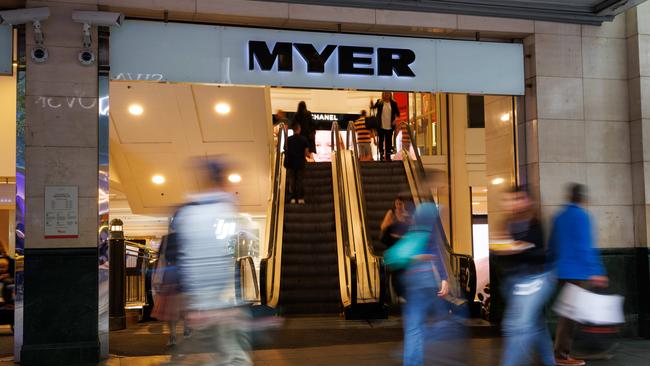
Business
Don't miss out on the headlines from Business. Followed categories will be added to My News.
After more than a decade stalking, playing and pressuring from the sidelines, billionaire Solomon Lew has finally reached his retail end game with Myer.
And his prize for patience? A far bigger apparel retailer where he personally gets a controlling stake, as well as finally being welcomed into the Myer fold with his very own boardroom seat.
And is it really such a bad thing that Lew has managed to secure control of Myer, a business he eyed for a full buyout in recent years? Not at all.
But the monster retail transaction that sees Myer double in size by buying a portfolio of domestic retail brands from Lew like Just Jeans and Portmans at a value of more than $860m, is not all risk-free for Myer shareholders.
They now stand to rise or fall alongside Lew.
Lew tells The Australian he is “personally very excited” by the planned transaction. “There is a lot of opportunity,” he notes pointing out Myer has more than $3bn worth of sales but hasn’t delivered on the bottom line.
“If you look at Premier, we’ve always delivered well for our shareholders. There’s lot of upside and a lot of areas that we can assist.”
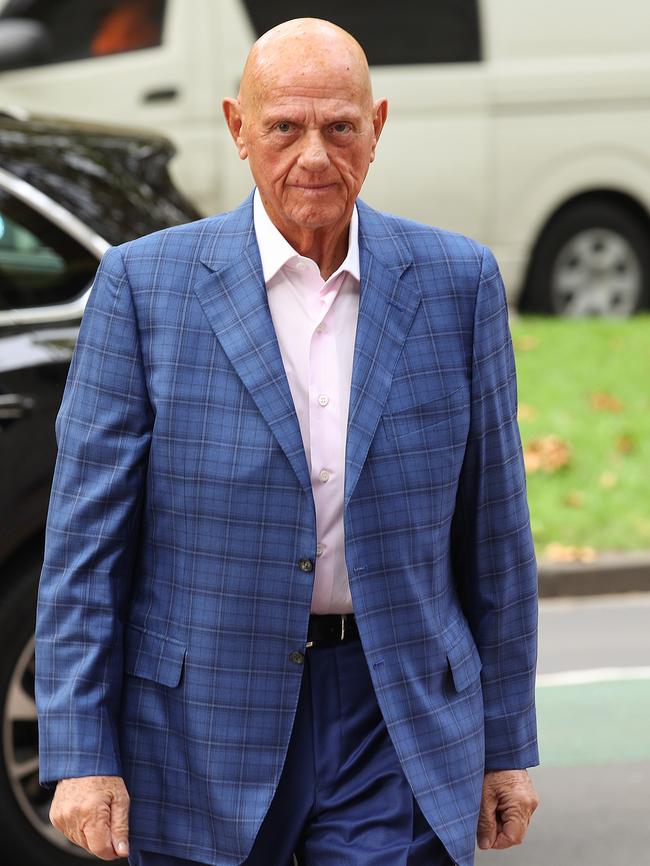
Under the deal, Lew personally emerges with a 26 per cent stake in Myer while the deal delivers more than 51 per cent of Myer to shareholders of Lew’s listed vehicle, Premier Investments.
This single deal allows Premier, which is five times the size of Myer, to offload a collection of low-growth businesses and focus on its higher-margin, higher-growth operations.
The buyout had been well flagged and the immediate was clear: Myer shares ended Tuesday down 1.6 per cent while Premier surged 10 per cent.
Wirth’s challenge
Even so, Lew will have plenty of skin in the Myer game, providing motivation to grow the department store’s earnings over time. This also serves as a safety net for existing Myer shareholders who will see their holdings diluted under the deal.
As Myer approaches a shareholder vote, they must consider whether the department store is stronger with Lew and his brands inside the tent, or if they’d be better off on their own with Lew agitating from the outside. Given Myer’s long-term underperformance, it’s likely they will back Lew.
Indeed, Lew and his Premier team are the best apparel retailers in Australia, with decades of global experience and expertise in sourcing and property management.
Now with a bigger balance sheet that Lew’s brands bring, this is Myer’s best chance for long-term viability.
The collapse this week of mass-market retailer Mosaic shows the brutal reality in apparel. More than ever, it’s about the survival of the fittest – especially in the fight for younger shoppers where Myer is increasingly playing is even tougher.
The challenge for Myer’s executive chair, Olivia Wirth, will be to make sure she can manage Lew’s retailing cashflow machine just as good as Lew can.
Wirth also needs to be mindful of looking out for all shareholders. This involves balancing Lew’s outsized influence over the retailer as well as managing the shared infrastructure that comes with the deal.
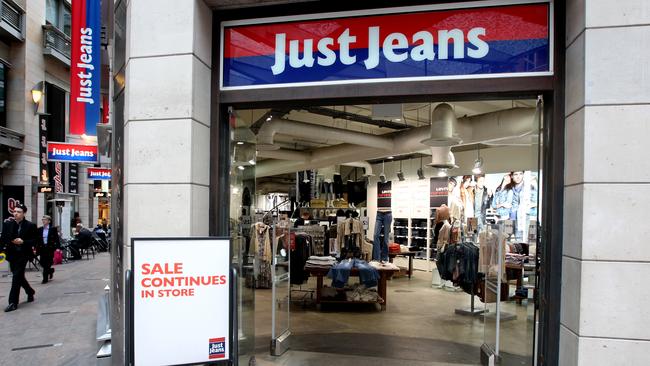
At its core this is a deal whereby Myer plans to buy a significant operating business from its major shareholder, Premier. The right checks and balances need to be in place.
Wirth, the former Qantas loyalty boss, may need to offer more. This includes transforming Myer into a more efficient, higher-margin retailer – something that has eluded successive management teams for decades.
It’s here that Myer hopes to leverage Lew and his brand managers to help with sourcing, production, distribution, and importantly speed-to-market for fashions. Other areas like warehousing and property management will also benefit from Lew’s way.
To get a sense what’s at stake. Myer runs an average profit margin of 2.3 per cent on every item sold, where’s Lew’s apparel brands set to moving across to Myer deliver 9.7 per cent. This is the fundamental secret to the deal.
Myer can utilise Premier’s insights to steadily improve its own margins. Even with limited growth in $3bn in annual sales, it translates into significant earnings potential for both Myer and Lew.
If Wirth can get these settings right, Myer could transition from merely managing for structural change to becoming a retailer with ample free cashflow to invest in growth and provide steady dividends for shareholders.
Margin is king
This is a significant moment in the history of the 124-year-old Myer with a deal that pushes it into specialist brands well beyond its core department store expertise.
The deal to buy the apparel business from Lew’s Premier is structured as a Myer acquisition, but the billionaire will be calling the shots.
Premier shareholders will effectively emerge with 51.5 per cent of the enlarged business. After the deal, Lew’s private company will have a near 27 per cent stake in the new Myer, as well as retaining his existing stake in Premier and a board seat.
After a hard-fought proxy battle in recent years, Premier already has one director, the former Myer and Kmart executive Terry McCartney, on the board and who will remain in the role.
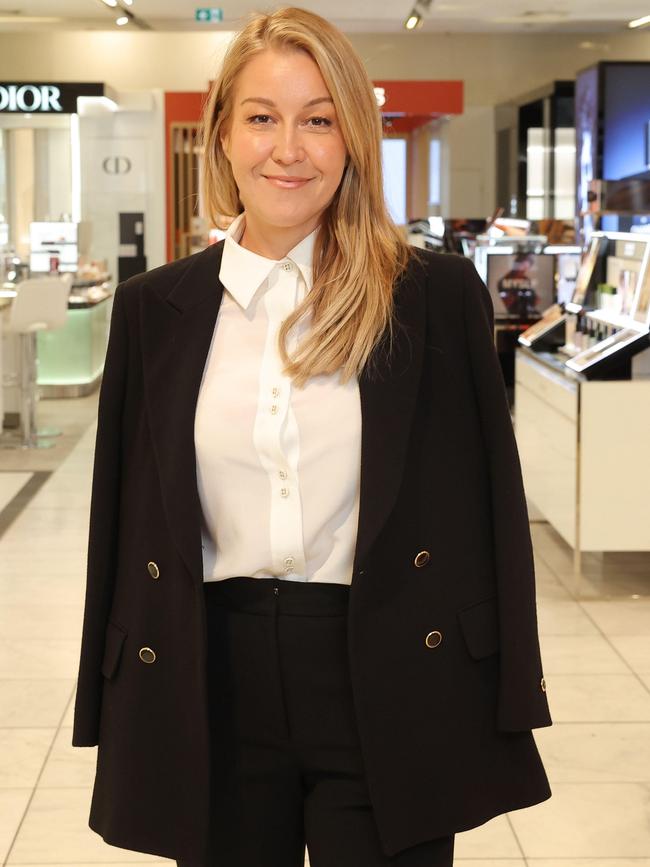
The five apparel brands – other names include Jay Jays and Jacqui E – will be folded into the new Myer along with $82m in cash sitting on the Just Jeans balance sheet.
Importantly, the all-share deal means Myer doesn’t take on any debt. As Mosaic and many failed retailers before it have found, debt is the stuff of poison during downturns.
The apparel brands like Just Jeans, Dotti, and Portmans moving across to Myer’s ownership are mature and low-growth businesses. But they exceptionally well-managed and run for cash by Premier.
They face fierce competition for the same consumer dollar as fast-fashion brands like H&M and Uniqlo, as well as online giants like Amazon and Temu, all targeting a younger market. The nature of retail is changing rapidly, with social media influencers increasingly shaping brand awareness and buzz.
Lew has countered this by tightly controlling the brand distribution and rapidly reducing the time it takes from a garment moving from design to hitting the shelves. Speed to market gives a reason for shoppers to keep coming back to the store.
Wirth will aim to leverage Myer’s powerful MyerOne loyalty program, which has more than 10 million members, to drive sales across Premier’s brands. She will also seek to increase higher-margin private label brands within Myer, sourcing from the same supply chain. Both Just Jeans and Myer have strong online platforms, although Myer boasts better integration with its loyalty program.
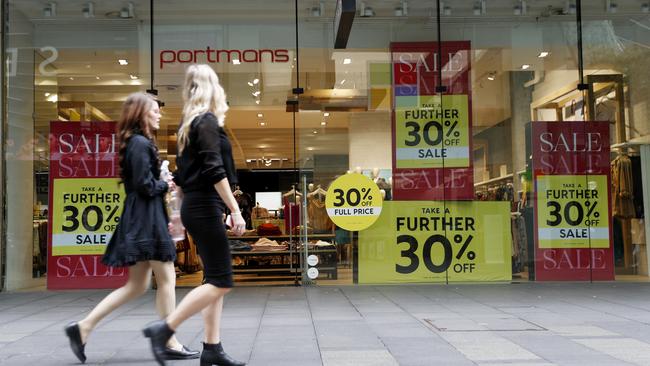
There’s also $30m of annual cost savings eyed in bringing the two businesses together. But if Lew gets his way the final annual savings figure will be much bigger. Myer currently loses about $50m annually in lost and stolen stock while Premier’s brands lose a fraction of that as a percentage of sales.
“I’ve been around for a year or two and I understand the retail business extremely well, and we see great upside,” Lew says regarding potential savings.
For Lew, the deal now turns his remaining Premier business into a higher-growth retailer with two flagship brands: Peter Alexander and Smiggle. The two generate more earnings than apparel brands combined, with an average margin of 30 per cent. Premier too will continue to own a 25 per cent stake in appliance retailer Breville, along with property and cash.
Lew, who controls 40 per cent of Premier, is still mulling whether to spin out both of these higher-growth brands down the track – essentially turning the listed Premier into its original purpose as a retail investment cash box.
Wirth and Myer’s shareholders will want to move quick to lock in the benefits of the buyout, but they should also think like Lew – and that’s about playing the long game.
eric.johnston@news.com.au
More Coverage
Originally published as Inside the plan for Myer after Lew reaches his retail end game





